Muffled Screams and Broken Dreams: The Great Corporate Time-Heist — The Aworkening
Is your time being taken by your corporate overlords? Perhaps. Come on a walkabout with us as we explore in this multi-part series.

Welcome to the first article of our multi-part series affectionately titled Muffled Screams and Broken Dreams: The Great Corporate Time-Heist
For convenience, here’s the whole list:
1. Intro: The Aworkening <- You are here
2. Part 2: Reconnoitering and Shit
3. Part 3: Survival — MVP+1
4. Part 4: Evasion — Counter-Strategy Strategy
5. Part 5: Resistance — Spite of a Warrior
6. Part 6: Escape — Fleeing the Scene
Part 1: The Aworkening
Before we get started, we’ve got two declarations to make:
- Our opinions are our own and do not reflect the opinions of anyone else. Ever. Shit, it may not even be our opinion. We could just be talking out of our collective asses.
- If at any point, you think that we’re talking specifically about you during this article series and you’re super pissed off about it, we’re not. Everyone we use and the situations therein are purely fictional. That being said, if this does hit super close to home, know you have our sympathy.
So, now you know what follows is probably going to piss a few people off.

Who are we?
You can see the full blurb at minimallyuseful.com/who-we-are.
We’re kinda like the kids making the racket playing in the cul-de-sac. An onlooking curmudgeon finger-fucks his blinds, peering out at said children from the safety of his poorly lit split-level, saying something along the lines of “what are those noisy little shits up to? And where did they get power tools? OH GOD THEY HAVE POWER TOOLS. WHAT ARE THEY DOING? IS THAT MY LAWNMOWER?” Short version: we’re always up to something and we fancy ourselves scientists with a chaotic-good alignment. A big focus of ours, for the time being, is finding ways to do less and get more (or get the same). So, we asked ourselves, what is something where we’re encouraged to work harder, better, smarter, etc… where we kinda get the raw end of the deal. Work. Specifically, corporate work (since it’s all we at MUI really know). Sorry firefighters, nurses, teachers and others with meaningful and rewarding jobs. This is just for the corporate folk. You’re still welcome to read if you want, but this guide is specifically tooled for our brothers and sisters stuck in the purgatory wasteland that is the corporate world.
We didn’t want to be total dickheads and ask you to read all this shit without giving you anything.
We pondered, “What could we provide that gives value to the people who read our ramblings?” A CERTIFICATION! Most workplaces get hard just thinking about certifications, and ours is pretty much as legitimate as most of the others out there. So, consider this the start of the journey to get your Minimally Useful Certified Universal Strategist (MUCUS) certification. We’ve also got an option for an advanced certification on our website. These are very prestigious certifications that prove you’re better than everyone else who doesn’t have one. You can learn more about them here.
John, the dead man.
We were on a flight to New York. A stranger with a crazy look in his eyes told us the following story… unsolicited.

I saw a man die. Not in the traditional sense. It was something far worse and more perverse than being struck by a train or accidentally letting the belt lock into place as you climax and choke to death. His name was John. John had worked his way up the corporate ladder for forty years. At the twilight of his career, he had very little responsibility, a prestigious title and spent most of his day just shooting the breeze with his work buddies, occasionally making a decision that didn’t affect anything, and chuckling to old YouTube recordings of the Ed Sullivan Show. He cherished the place he worked and everyone who worked there cherished him. Unbeknownst to John — it was a perverse love. He stood as a trophy, a captured soul, a “testament to success” at the company. His work and his position had become the single biggest part of his identity. Even when he wasn’t at work, his work was exerting an invisible pressure upon him. When asked a question about himself, his response would inevitably start by stating his employer’s name and his title within the company. John didn’t concern himself with things like his place in this world and his contribution to the bigger picture. John, like most people his age, was looking forward to retirement, spending time with his grandkids and his wife. He had a few more years to get to the point where he could have the peace of mind of a secure post-work financial situation. Unfortunately for John, the business had different plans.
Unbeknownst to John, there was an investment call where the CEO said that he was dedicated to driving more money to investors, and that part of his plan was to trim $35 million dollars from the operating budget. Part of this trim involved retiring people early. People like John. The CEO was a man of his word, and handed down a mandate to retire 40 employees early.
There was a retirement party thrown to celebrate all of John’s efforts, achievements, and good memories that John had put into the company. Cake was had. John sat at a conference table wearing a party hat, staring forward into the middle distance. The company that he so loved had betrayed him. He had woken up, slogged to work and done his best for thousands of days. He worked late when deadlines were fast approaching, and pushed away his own needs and time when business mandates would come down from on-high demanding additional productivity from the workforce. The company chose investors over him and severed the idea of the employer-employee social contract on which we have all been raised. I stood in the corner, watching John, and that’s when I saw it. I saw what happens when a foundational belief in someone is shattered. John’s last bit of optimism and energy to do well for his employer, his desire to honor his half of the employer/employee contract simply left his body. The most existentially terrifying thing to John, was that nothing he had created for the company existed anymore. Thinking back, John realized that all of his achievements and hard work for the business had been overwritten by progress. Yet, he had pushed so hard in his early years. He wanted to push himself, do well, further the business. John sat there and realized that all of his sacrifice in going above and beyond was all for nothing.
The retirement party was on a Friday afternoon, and there was just an empty space where John had once been on the following Monday. Life went on at the company, but something stuck with me. The thought of an unspoken contract violated, a belief shattered, and a man left broken. Yet, here everyone was, in this cage toiling away. Concerned about performance reviews, deadlines, and strategy meetings. It ate at me. Why work for a betrayer? Why pour your heart and soul into something so meaningless that the memory of you could be destroyed over a weekend? How could everyone here be so short sighted?
The crazy-eyed man disappeared into a crowd at LaGuardia, but there was a weight behind his story. Something that hits straight at the heart of a SHITLOAD of jobs that people across the globe occupy. Why would people allow themselves to be slowly consumed like that? We get it. Money, security, peace of mind. The hope to eventually have the time and means to do what you like. The dream to leave your kids with more than you had. That’s only a partial answer. Even with all of that on the table, there’s a lingering feeling that a lot of people are being taken advantage of. Their time is being stolen. Time is a precious resource of ours, and it feels as though the corporations that we work for have weaponized ways to siphon more and more of our time without respecting the balance of a social contract.

This article series is not intended as some sort of pie-in-the-sky “Quit your job and live the life you always wanted” article, nor are we writing it as some shitty “Rise and Grind — the key to happiness is working even harder” tomfuckery. Not everyone can be some slick entrepreneur. Some people are destined for the corporate grind. You’re the ones we’re talking to. Our people. To you we say: Put down that shitty book on “How to be the most productive you” that tries to convince you it’s important to work harder for some douche canoe who continuously wants more and more from you without any sort of reciprocation from their end. This article series is an evaluation of the social working contract, and a survival guide on how to avoid giving more of yourself than absolutely necessary to a company that doesn’t give a shit about you.
Now that we have the sad stories out of the way, it’s time to collect yourselves, harness the unending power of your spite, temper it with knowledge and forge the tools to help us survive in the corporate war zone.

Acceptance
You. Are. A. Prisoner. Heavy shit — we know. It’s important that you accept and fully understand the nature of your predicament. There’s bad news and good news. The bad news is that you’re likely stuck here until your body wastes away and will spend most of your healthy years putting money into some other shitlord’s pocket. The good news however, is that, despite the dreary nature of your situation, you’ve got an option to claim a small piece of yourself back from the MBM (Malevolent Business Mindset) and all the psychic havoc it’s wreaked. Resistance, our corporate brothers and sisters. Civil Disobedience. It all starts with accepting your situation. Once you’ve got your mind all good and lubed up with acceptance, you can receive the thick and veiny shaft of knowledge that we’re about to thrust your way.
You’ll pick up the details as we continue along this path, but we wanted to take a moment here to define the Malevolent Business Mindset (MBM). When someone says “yes” to a job, they enter into a social contract with their employer. The social contract basically states “X employer will pay Y employee Z compensation for Y employee’s labor (time, effort, productivity)”. Seems simple enough, right? Well, there’s a great deal of employers out there who found ways to squeeze additional productivity out of their employees without properly upping the compensation piece on their end of the bargain. It’s gotten to the point where it’s both normal and expected for an employer to demand more. Why? We’re not mathmagicians, but our assumption is that; if increased productivity equals increased money, and that money isn’t going to the employees — well, it’s probably making its way to those who guide the business (CEO, CFO, COO, etc…). The MBM is a mindset that is cultivated in a workforce to encourage the increased productivity in workers without an employer compensating their workers in line with their increased productivity and lost time.
We’ve got just a bit more ground to cover before your mind is ready.
We’ve already covered that you’re stuck in a corporate hellscape purgatory where you’re having your productive time siphoned away for someone else’s profit (with a comparatively small uptake on your end). That’s just the tip of the Wahlberg. This guide is designed to help you:
- Identify the mindset that is driving this time-siphoning atrocity
- Identify the controls put in place to manage your productivity and behavior
- Develop strategies to prevent yourself from having any additional time siphoned by your employer than absolutely necessary to maintain your job
- Use strategies that will simultaneously bring others to the light and also provide a fun, engaging, and polite way to tell those who would exploit your time to kindly eat their own ass.
The series is probably going to cause some cognitive dissonance in some of our audience — for a few reasons:
- A lot of people are going to wonder how we were able to make it through any form of formal education with our conversational and often-times incoherent writing style.
- A lot of people are SUPER into this ‘work hard for your employer and they’ll work hard for you’ mindset. There may be exceptions to the rule, and we’re glad for you if that’s something you’ve got going on in your life. But, from what we’ve seen, it’s kind of a dead concept. Most corporations would sell their entire accounting team’s organs if they could make a significant profit off of it.
- This is not like other guides where the author says “Leave your mundane-ass job and follow your passion”. Nope, because a lot of you, like us, just aren’t equipped for entrepreneurship or even a career change. This is a guide for those who elect to stay in purgatory, and some people can have trouble with not reading the traditional self-help “Leave your job and follow your dreams” porn.
Check out MinimallyUseful.com, we’re always doing something. Also, if you’re feeling excited for this series, check out our professional certification.
Look out for our next article in this series. It’ll cover the basics of reconnaissance of the workplace.
